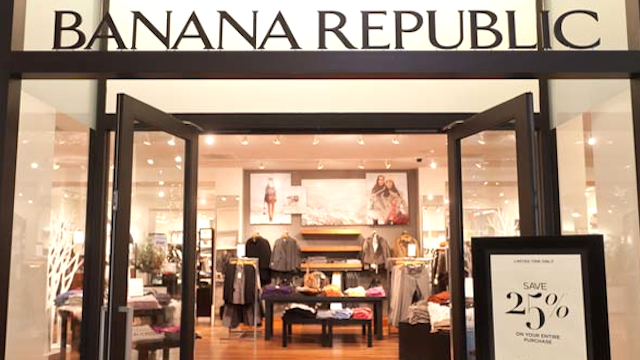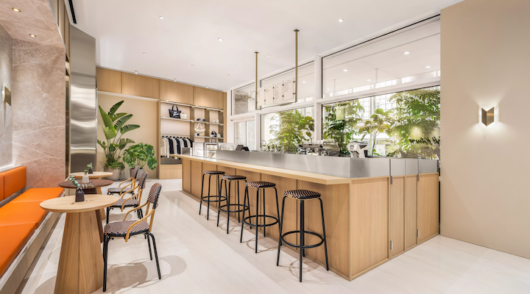Banana Republic UK is to close down after eight years of brand erosion.
While some credit is due to Banana Republic for not resigning from the UK clothing market sooner, having endured a recession, increased competition and volatile trading conditions, its failure in the UK must also be attributed to a lack of investment in tailoring its proposition, and a poor pricing and promotion strategy.
The Gap-owned fascia launched with aplomb in 2008 on London’s Regent St, with a beautiful flagship store signalling its intention to make a mark on the premium clothing market, rivalling the likes of Reiss, Ted Baker, Hobbs, Whistles and French Connection. While further store openings followed (it currently has seven stores in London, and one in Bath) as well as a transactional website which aided brand exposure, disappointingly, the brand failed to justify its premium price points, leaving consumers with little encouragement to shift their spend from rivals.
Poor design and fit weakens the brand’s premium position
Product must always be the core focus, but Banana Republic has underinvested and not listened to customer feedback. At the right price, its contemporary, classic styling should work in the UK – more trend-led and formal than Gap, but less European than Zara or Massimo Dutti, and better quality workwear than the midmarket.
But the fit of product is all wrong. This immediately became apparent on entering the UK, with size 8 tailored work dresses fitting a size 12, and dresses in its petites range with sleeves a 10-year old would struggle to fit their arms through.
This obvious miscalculation on fit is disastrous for a retailer with such scale, but even more tragic is that the retailer failed to make significant improvements over the last eight years to win back dissatisfied shoppers. Had the design and fit-process received more investment, skill and attention, its premium positioning would have been easier to justify.
Blanket discounts damage brand credibility and operating margins
Banana Republic’s pricing strategy undermines its efforts to be an aspirational, premium destination. Much like its sister brand Gap, frequent promotions on selected ranges such as knitwear or blanket discounts across the full offer have eroded respect for the original ticket price, with consumers holding off making a purchase until at least a 30 per cent discount has been applied.
This strategy does not work in the UK and is detrimental to margins if price cuts are reactionary, desperate and unplanned. Gap’s global operating margin (including Banana Republic) dropped 3.7 percentage points to 9.6 per cent in the two years to January 2016, and while not directly comparable, in the UK operating margins across the clothing & footwear sector rose by an average 0.8 percentage points to 8.7 per cent in the same period.
Banana Republic UK could afford to drop retail prices to provide shoppers with better value for money, while scaling back the level of promotions and making them more strategic would ensure a stronger, more successful ‘first price right price’ strategy.
Banana Republic the first of a few likely departures from the UK
While gaps in the UK clothing market remain – particularly in menswear – international brands continue to underestimate the sophistication and complexity of getting the product and pricing, and subsequently, brand appeal right. J Crew and Forever 21 have kept Banana Republic company in underperforming in their respective market segments. These brands lack differentiation or an edge on their UK and European rivals, which better tailor their offers to the needs of British consumers. With a tough few years ahead, Banana Republic’s withdrawal from a physical presence in the UK marks the first of a few likely departures – of both international and domestic players.
* Honor Strachan is lead analyst with Verdict Retail.






